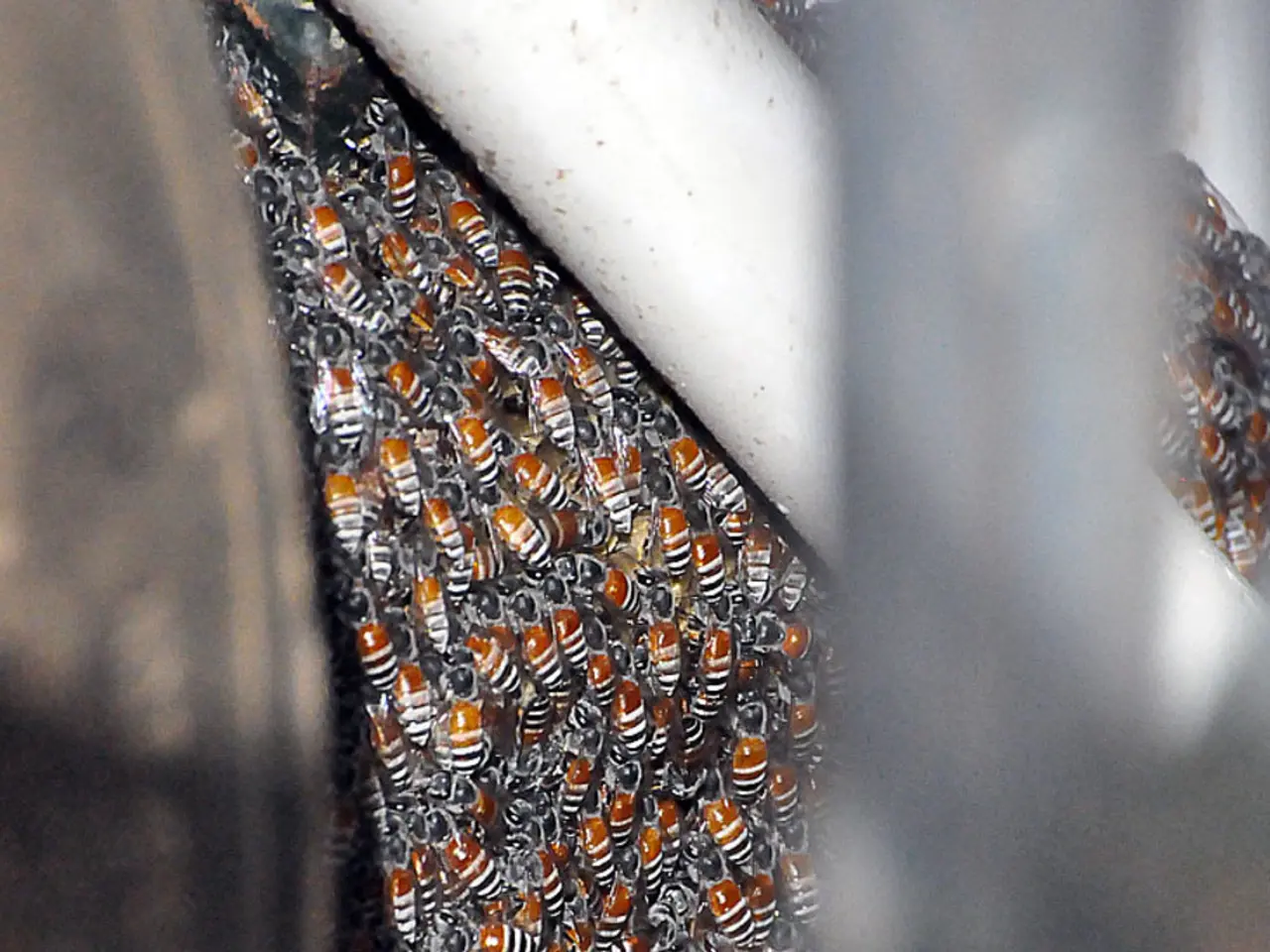Manuka honey: an exclusive honey produced in New Zealand by bees that pollinate the Manuka bush. Known for its unique antibacterial properties due to the presence of methylglyoxal.
Manuka honey, a special variety of honey produced exclusively in New Zealand, has gained a reputation for its unique properties and potential health benefits. This honey, derived from the nectar of the Manuka tea tree, which blooms for only a brief period each summer in the country's remote forests [1], is distinguished by the presence of methylglyoxal (MGO), a naturally occurring organic compound [4].
MGO is responsible for Manuka honey’s potent and stable antibacterial properties [1]. Unlike regular honey, which contains less than 10 mg/kg of MGO, Manuka honey can exceed 800 mg/kg, depending on its grade [4]. Other notable components include oligosaccharides and prebiotics, amino acids, polyphenolic compounds, and a range of plant-derived bioactive substances—many of which are also present in regular honey, but often at different concentrations [5].
The high levels of MGO, combined with other bioactive compounds, support wound healing, promote tissue repair, and may help the immune system defend against bacterial and viral infections [3][5]. Manuka honey’s potency is graded by its MGO concentration (measured in mg/kg) or the Unique Manuka Factor (UMF), a broader grading system reflecting antibacterial strength [2][3].
While regular honey also has some antibacterial and wound-healing properties, these effects are generally less pronounced and less stable [5]. Manuka honey’s unique composition may also contribute to its antiviral and antioxidant effects, potentially offering broader health benefits than regular honey, though more research is needed to fully understand these mechanisms [3].
In comparison to regular honey, Manuka honey's key antibacterial compound is MGO, with high levels (up to 800+ mg/kg), whereas regular honey contains low and unstable amounts of hydrogen peroxide [1]. Manuka honey's antibacterial stability is also superior, as its non-peroxide activity is not destroyed by heat, light, or bodily fluids, unlike the peroxide activity in regular honey [1].
Manuka honey is traceable to the source through a unique QR code, ensuring its authenticity. It is 100% monofloral, produced solely from the nectar of Manuka flowers, and is raw, unpasteurized, and ethically harvested, preserving beneficial nutrients [1]. This honey contains naturally occurring antioxidants that help combat environmental stressors and supports digestive health, provides natural energy, and promotes immune function [2].
Although Manuka honey is more expensive than regular honey due to its limited production, unique benefits, and authenticity verification processes, it is safe for consumption by pregnant women, with the usual advice to consult with a healthcare professional if you have concerns or specific health conditions [6]. The New Zealand Ministry of Primary Industries (MPI) has set strict guidelines to authenticate Manuka honey, ensuring its quality and purity [7].
In summary, Manuka honey's methylglyoxal (MGO) content is the primary compound that differentiates it from regular honey, granting it superior and more stable antibacterial properties [1][4]. This, along with its broader suite of bioactive compounds, underpins its reputation for wound healing, immune support, and antimicrobial activity—benefits that are generally more pronounced and reliable than those of regular honey [3][5].
- Although regular honey also offers some health benefits, such as antioxidants that support digestive health and provide natural energy, Manuka honey's unique composition with higher MGO content and a broader suite of bioactive compounds makes it more potent and reliable for immune support, wound healing, and antimicrobial activity.
- As part of a healthy and balanced lifestyle, incorporating food and drink choices that include Manuka honey could help combat environmental stressors and promote immune function, in addition to the benefits offered by standard health and wellness practices.
- With an emphasis on medical conditions and food and drink, Manuka honey's unique properties - such as its stable antibacterial properties, antioxidants, and potential antiviral effects - could contribute to a healthier lifestyle and contribute to the management of certain health conditions when used appropriately, though further research is necessary to fully understand these effects on human health.




